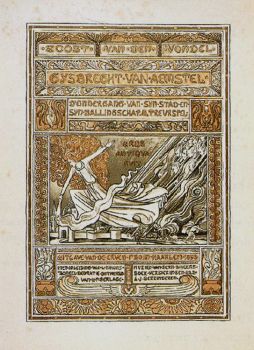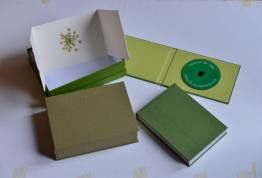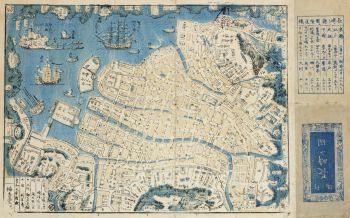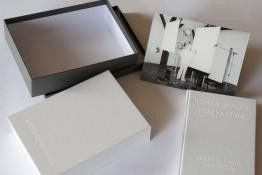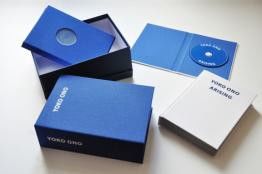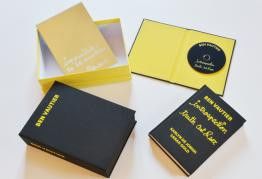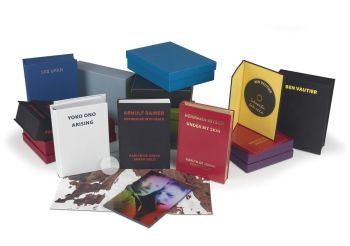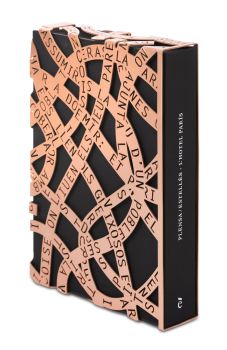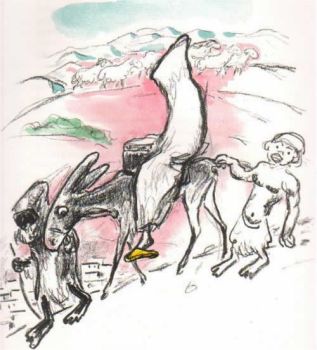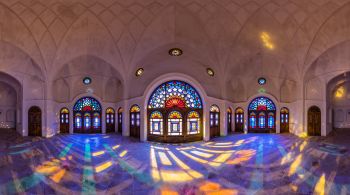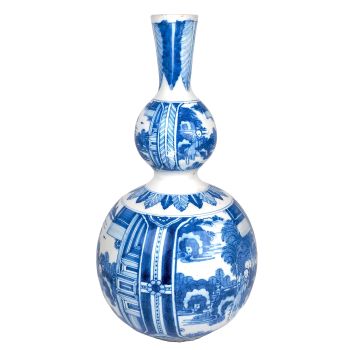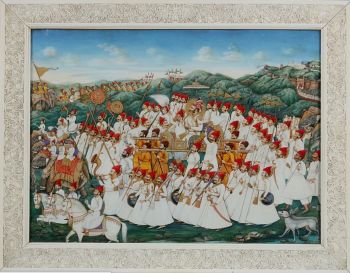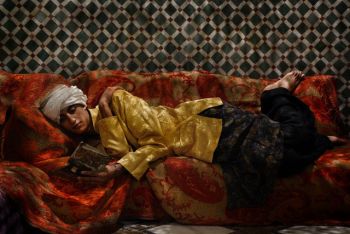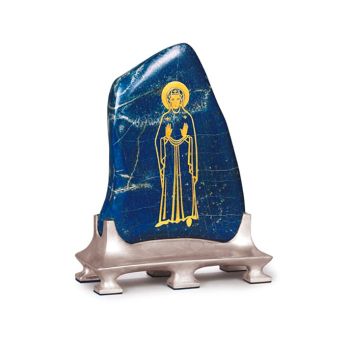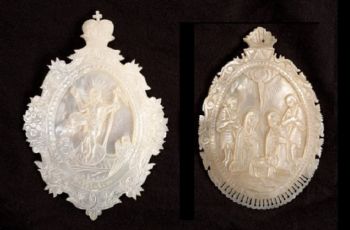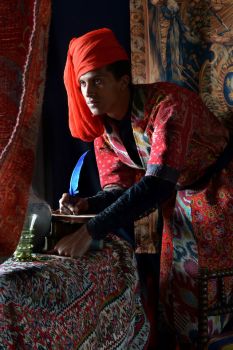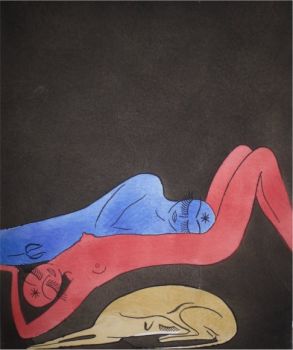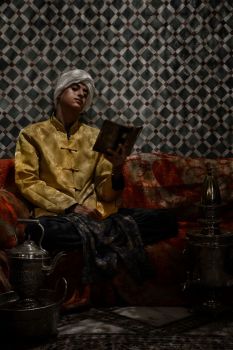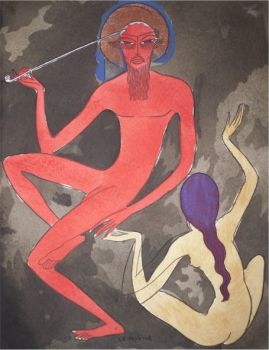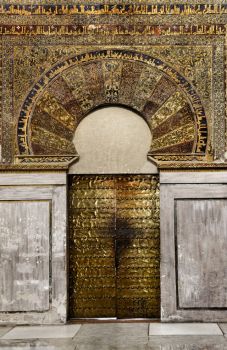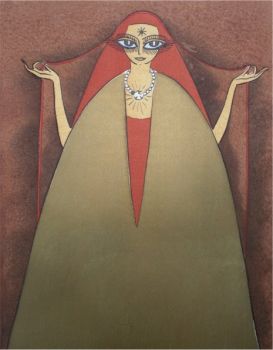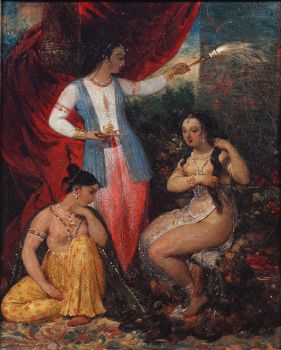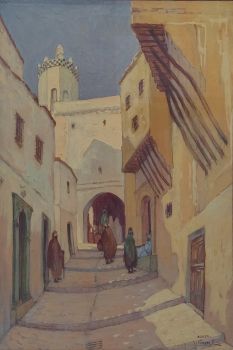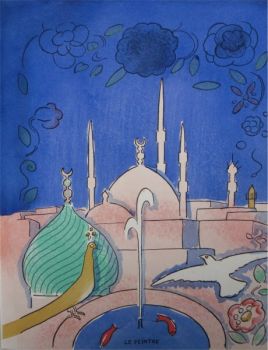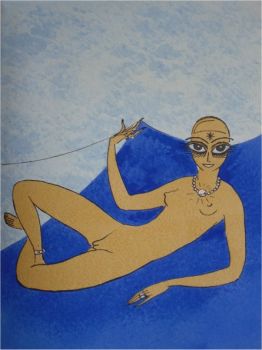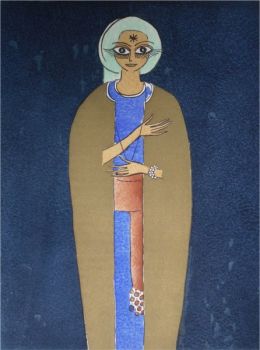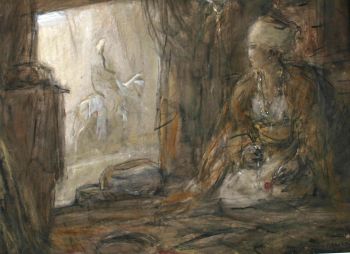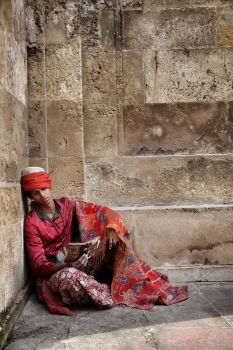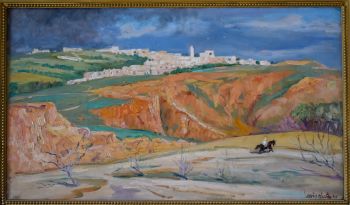Instructions for Carsten Niebuhr's expedition to Arabia 1774
Johann David Michaelis
Actuellement indisponible via Gallerease
- Sur l'oeuvre d'artRecueil de questions, proposées à une société de savants, qui par ordre de Sa Majesté Danoise font le voyage de l'Arabie.
Amsterdam, S.J. Baalde; Utrecht, J. van Schoonhoven & comp., 1774. 4to. Set in roman type with incidental Greek, Hebrew, Arabic, Syriac and 1 word in Coptic. Near-contemporary tanned sheepskin, gold-tooled spine.
Hans Bernhard Merian's French translation of Michaelis's Fragen an eine Gesellschaft gelehrter Männer (1762), prepared during the early stages of Carsten Niebuhr's Danish expedition to the Middle East. It is the first edition in any language to be printed in the Netherlands. Johann David Michaelis, a famed German Orientalist and theologian, was one of the scholars who prompted the important Danish expedition to Egypt, Arabia and Syria (1761-1767), led by Carsten Niebuhr. Michaelis hoped to investigate the relationship of the southern Arabic dialects to Hebrew, and to verify obscure botanical and zoological information in the Bible. For this purpose he composed the present 100 "questions". It includes the instructions for the expedition by Frederick V of Denmark, a 35-page account of Yemen and an extract of Carsten Niebuhr's account of Arabia (not included in the first French edition of 1763).
Back of first free endleaf with traces of removed bookseller's(?) ticket. With an occasional small rust spot, but otherwise in very good condition and only slightly trimmed, leaving large margins. Binding with minor suface damage and wear at the hinges and extremities, but otherwise also very good. Important preparatory studies concerning Egypt, Arabia and Syria, written and first published during the early stages of a voyage.
Chadenat 1933; Gay, Bibl. de l'Afrique en de l'Arabie 3366; STCN (3 copies); Macro, Bibliography of the Arabian Peninsula 1593. - Sur l'artisteJohann David Michaelis était un célèbre orientaliste et théologien allemand, était l'un des érudits qui ont incité l'importante expédition danoise en Égypte, en Arabie et en Syrie (1761-1767), dirigée par Carsten Niebuhr. Michaelis espérait étudier la relation entre les dialectes du sud de l'arabe et l'hébreu et vérifier des informations botaniques et zoologiques obscures dans la Bible. Michaelis est né à Halle an der Saale et a été formé à la vie universitaire sous les yeux de son père. À Halle, il fut influencé, notamment en philosophie, par Siegmund J. Baumgarten (1706–1757), lien entre l'ancien piétisme et J. S. Semler, tout en cultivant son goût prononcé pour l'histoire sous le chancelier Ludwig. En 1739-1740, il obtient le titre de professeur d'université. L'une de ses dissertations était une défense de l'antiquité et de l'autorité divine des points de voyelle en hébreu. Son érudition évoluait toujours selon les anciennes lignes traditionnelles, et il était aussi beaucoup exercé par certains scrupules religieux, certains voyant un conflit entre son esprit indépendant et celui de la soumission à l'autorité - encouragé par le luthéranisme dans lequel il avait été formé - qui affectait son raisonnement. Une visite en Angleterre en 1741-1742 le sortit du sillon étroit de son éducation antérieure. En passant par les Pays-Bas, il fit la connaissance d'Albert Schultens, dont l'influence sur ses vues philologiques devint toute puissante quelques années plus tard. A Halle Michaelis se sentit déplacé et en 1745 il accepta volontiers une invitation à Göttingen en tant que Privatdozent. En 1746, il devint professeur extraordinarius, en 1750 ordinarius, et à Göttingen il y resta jusqu'à sa mort en 1791.
Artwork details
Related artworks
Tilmanus Nicolaus Maastricht
Missale Romanum avec montures en argent hollandais1788 - 1792
Prix sur demandeJacob J. Roosjen SRI
Engelbert Kaempfer
LIVRE ENGELBERT KAEMPFER1651 - 1716
Prix sur demandeZebregs & Röell - Fine Art - Antiques
Antonie Derkinderen
Memory book Exhibition of Dutch Painting1892
Prix sur demandeKunsthandel Pygmalion
LAWRENCE WEINER
"SKIMMING THE WATER [MENAGE A QUATRE]" Signed book plus small artwork2010 - 2014
Prix sur demandeGallerease Selected
Engelbert Kaempfer
LIVRE ENGELBERT KAEMPFER1651 - 1716
Prix sur demandeZebregs & Röell - Fine Art - Antiques
Tilmanus Nicolaus Maastricht
Missale Romanum avec montures en argent hollandais1788 - 1792
Prix sur demandeJacob J. Roosjen SRI
Antonie Derkinderen
Memory book Exhibition of Dutch Painting1892
Prix sur demandeKunsthandel Pygmalion
Yoko Ono
YOKO ONO: "ARISING" SIGNED BOOK PLUS SMALL ARTWORK 2010 - 2014
Prix sur demandeGallerease Selected
Hermann Nitsch
"UNDER MY SKIN" Signed book incl. small artwork and DVD in a matching box2010 - 2014
Prix sur demandeGallerease Selected
1 - 4 / 22Artiste Inconnu
GRANDE PEINTURE INDIENNE IMPORTANTE ET RARE `` STYLE D'ENTREPRISE '' SUR IVOIRE REPRÉSENTANT UN DÉFI1850 - 1900
Prix sur demandeZebregs & Röell - Fine Art - Antiques
 Sélectionné par
Sélectionné parDanny Bree
Elisabeth Treskow
Lapis lazuli afghan incrusté d'or sur un support en argent1950 - 1960
Prix sur demandeJacob J. Roosjen SRI
1 - 4 / 24

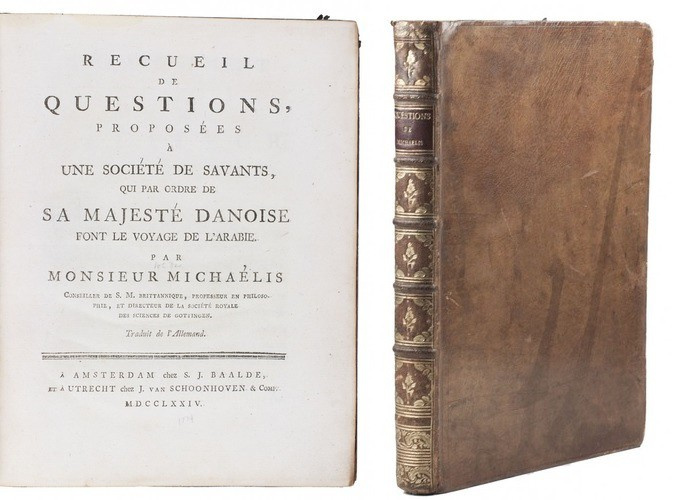



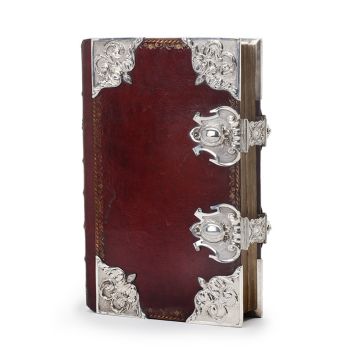
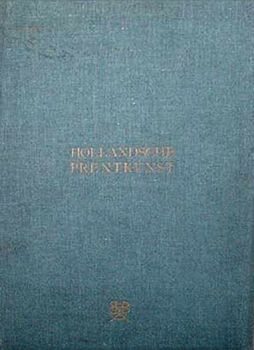
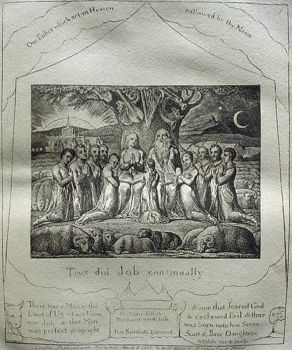
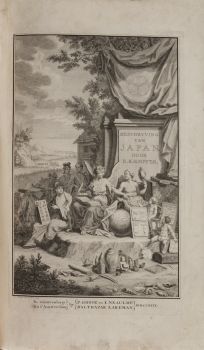
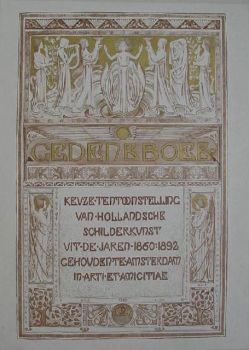
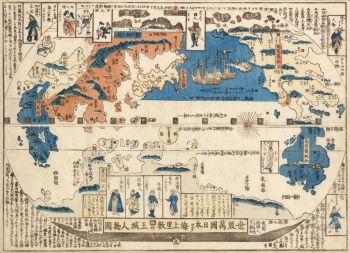

!["SKIMMING THE WATER [MENAGE A QUATRE]" Signed book plus small artwork by LAWRENCE WEINER](https://media-2.gallerease.com/images/442bfd5f-fc31-4e18-a2fa-ee0c08eade64/350x350/skimming-the-water-menage-a-quatre-signed-book-plus-small-artwork.jpg)
